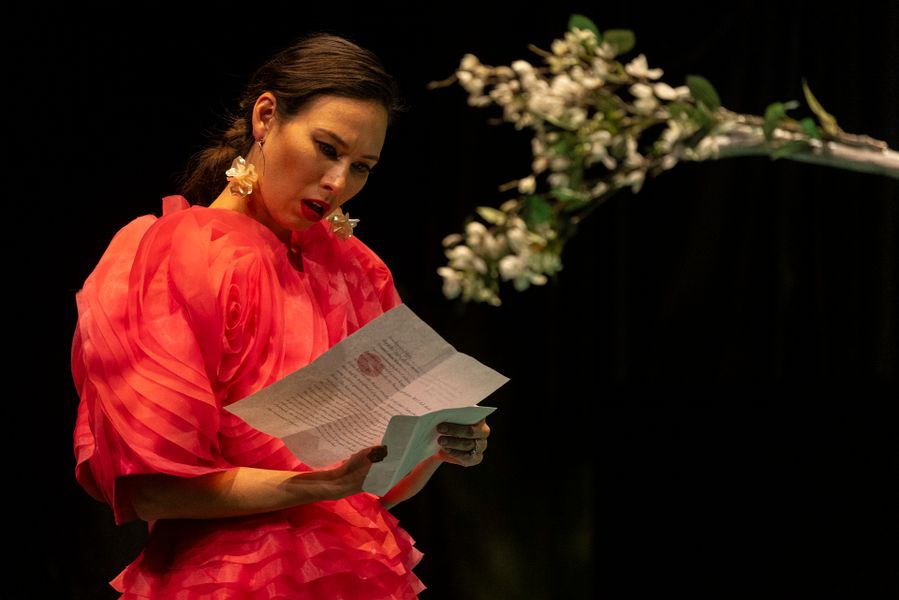

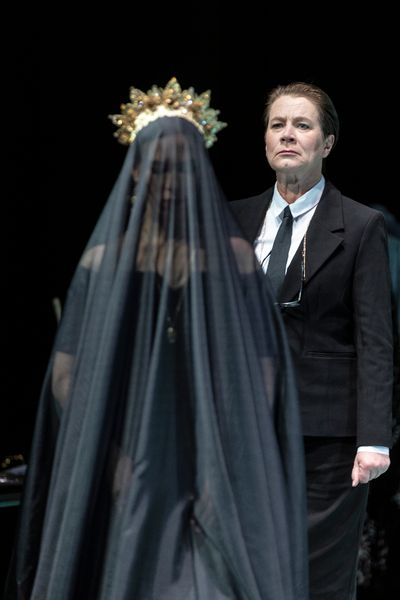
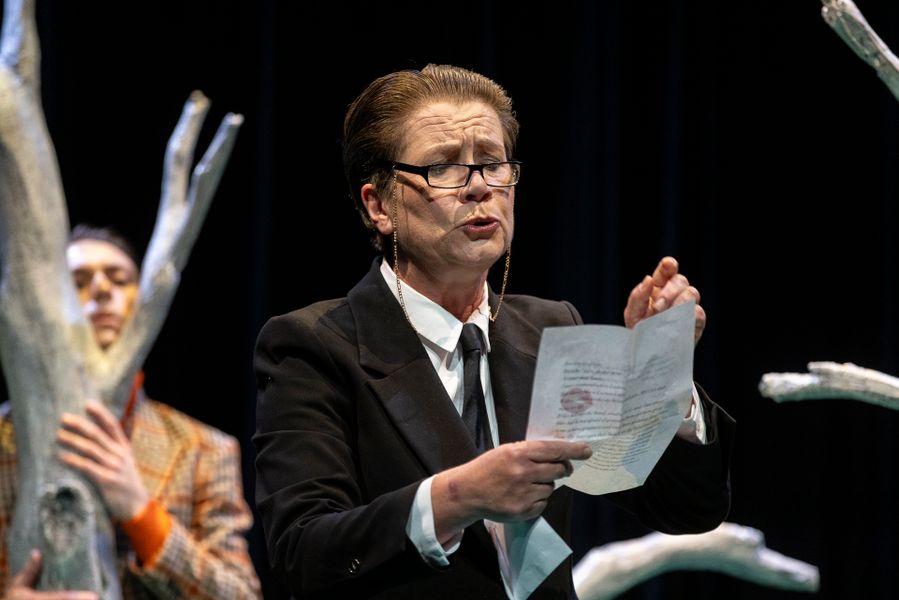
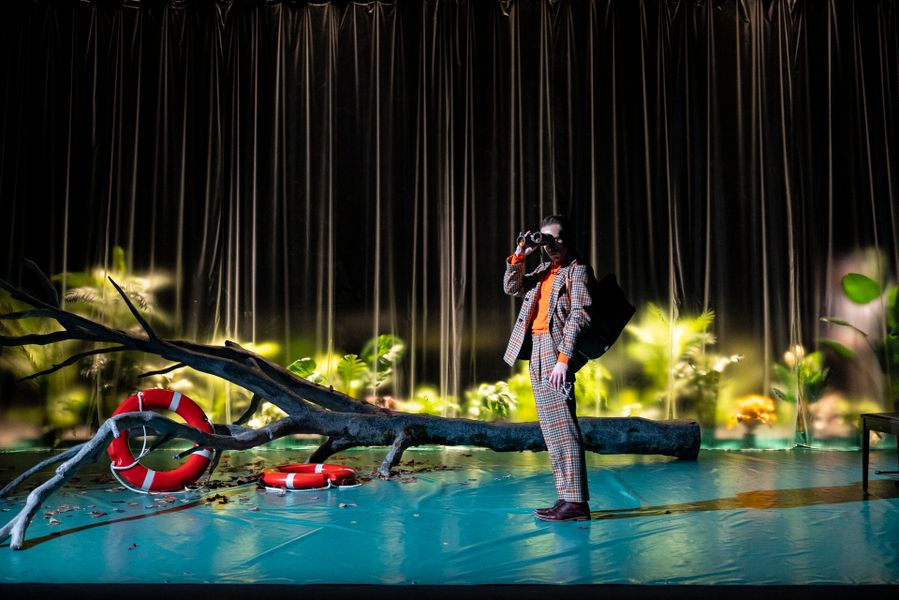
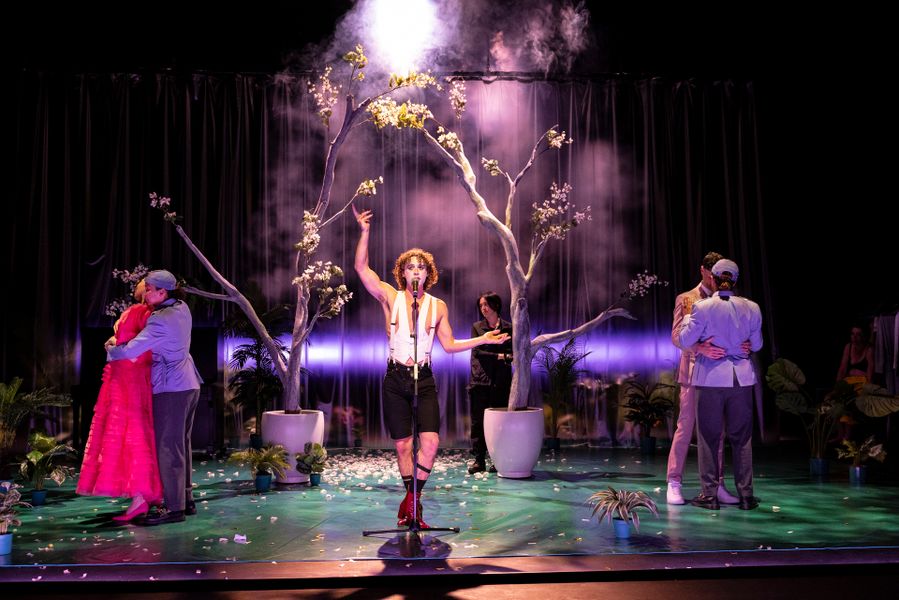
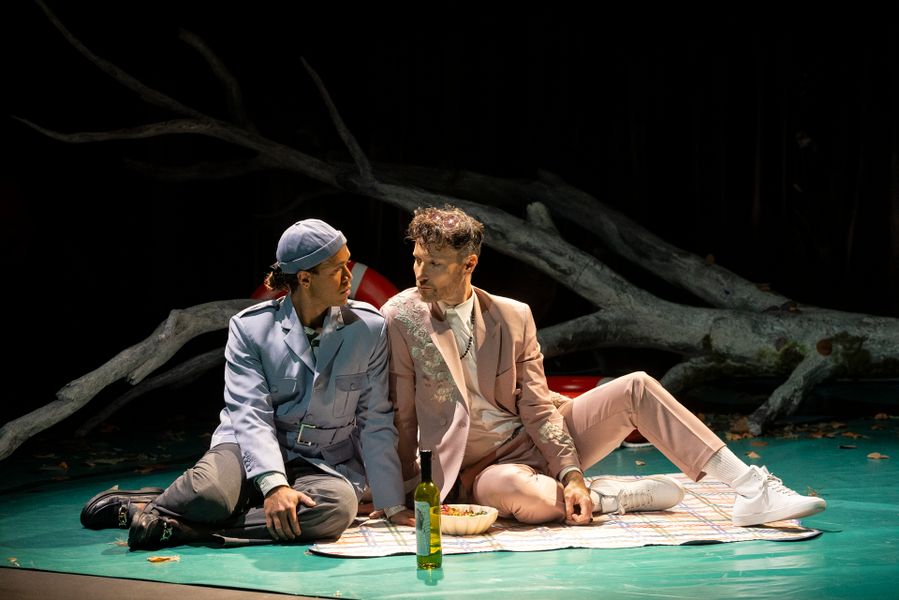

Director Heather Fairbairn's shares the insights and influencers behind this production of Twelfth Night, from casting to design.

This production celebrates love in all its forms. The characters who live in, or get shipwrecked to, Illyria become love-sick before undertaking an exploration of gender and sexuality.
However, the central theme in the play - how people express gender and sexuality in different ways - was all the more prominent in early productions featuring an all-male cast. In these earlier renditions, Viola, a female character who disguises herself as a page boy, was portrayed by a young male actor. When the characters coupled off toward the end of the play, it resulted in a series of male couples. The love portrayed in these early productions transcended gender and sexuality, instead emphasising the human need for connection while acknowledging the multiplicity of romantic identities.
In casting this Bell Shakespeare production, I set out to reinstate the dramaturgical effect of an all-male cast without having an all-male cast. To achieve this, I took Olivia’s declaration of “abjuring the company and sight of men” on board. In this production, Olivia’s court is populated by women, namely Maria and Malvolia. Toward the west of town, Orsino’s court is populated by men. Feste, on the other hand, serves as a social butterfly traversing both courts, or as Feste puts it, they “walk about the orb like the sun”.
Feste also acts as our maestro, whose melancholic yet genre-defying songs, beautifully composed by Sarah Blasko, deliberately undercut the play’s comedic tone. The dissonance between the music and the comedy finds a natural place in the disorientating world of Twelfth Night, where light and dark, comedy and tragedy, joy and grief, and order and chaos converge. In this play centered around twins Viola and Sebastian, whose journeys through Illyria mirror one another’s, the multitude of opposing forces enhance the sense of duality. Designer Charles Davis and I doubled down on this duality in the design through the pairing of nature motifs and artifice, and the creation of simultaneous onstage and offstage worlds.







Twelfth Night is an enigmatic play that asks more questions than it answers and regularly contradicts itself. The play's full title, Twelfth Night or What You Will, and the first word of the play, "if," introduce an atmosphere of uncertainty and equivocation from the outset. One such area of ambiguity lies in the play's setting. While technically set in Illyria, Twelfth Night challenges this notion by incorporating several London landmarks, including the Elephant pub. Moreover, most Elizabethan theatregoers would not have been familiar with Illyria as a location, so for Shakespeare’s audience the setting became a place of the imagination, a fictional place, a disorientating place, a nowhere place. As such, we took inspiration from the historical reception of the work, and have purposefully positioned the action of this production in no fixed place at no fixed time.
The only constant in our a-historical nowhere is change. Set against the backdrop of grief, the play encourages us to acknowledge our mortality and seize the day as it will all eventually end. As Feste points out “What is love? ’Tis not hereafter. Present mirth hath present laughter”. This rather morbid yet realistic outlook is repeatedly pointed to in the language of the play through nature motifs and the observation of life-cycles in the natural world, for example, the brief life of a rose “whose fair flower being once display’d doth fall that very hour.”
Our production is a memento mori, a reminder of the brevity and fragility of human life. Bittersweet, the production encourages us to accept the fleeting nature of life, live in the moment, and embrace love (romantic love, familial love, platonic love) in all its glorious guises and expressions
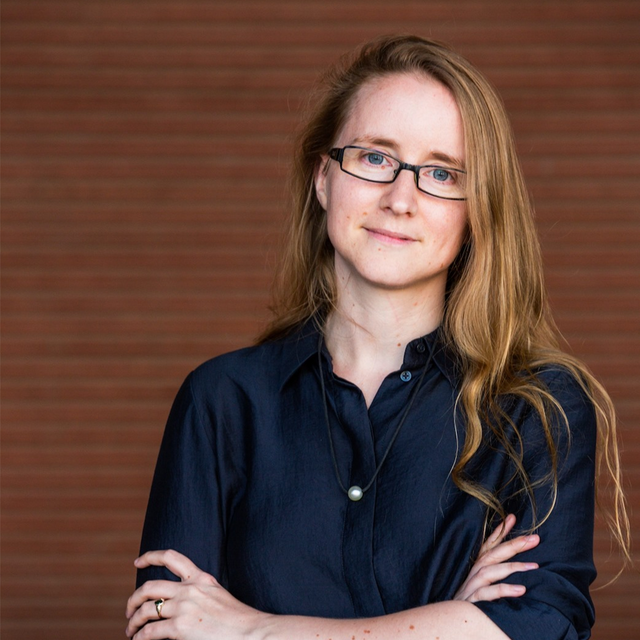
Heather Fairbairn is an opera and theatre director, holding a Master of Fine Arts (Directing) from the National Institute of Dramatic Art and a Bachelor of Creative Arts (Drama and Creative Writing) from The University of Queensland. For Bell Shakespeare, Heather directed The Alchemist and Women Beware Women as part of the Play In A Day script reading series.
Other directing credits include An Enemy of the People for Queensland Theatre; Sunnytown for La Boite Theatre; Silk Moth for Arcola Theatre, London; The Mutant Man for The Space Arts Theatre, London; Elektra/Orestes for Metro Arts; Little Nemo and the Ice Cream Witch for Bayerische Theaterakademie; Snappy Operas for Mahogany Opera Group, London; and Ariadne Auf Naxos with director Katie Mitchell at the Festival d’Aix-en-Provence, Royal Danish Opera, Théâtre des Champs Elysées and Finnish National Opera. Heather’s popular staging of Mozart’s The Magic Flute is regularly revived in concert halls around Europe. Associate Director credits include Le Nozze Di Figaro and Orpheus & Eurydice for Opera Queensland. Assistant Director credits include Lord of the Flies and Accidental Death of an Anarchist for Sydney Theatre Company; Lucia di Lammermoor and Il Trovatore for Royal Opera House; and As You Like it for La Boite Theatre.
Among other works in development, Heather is co-writing a new opera called O Segredo Do Rio and directing Biographica for Lyric Opera of Melbourne. Heather regularly lectures for the NIDA post-graduate directing course.